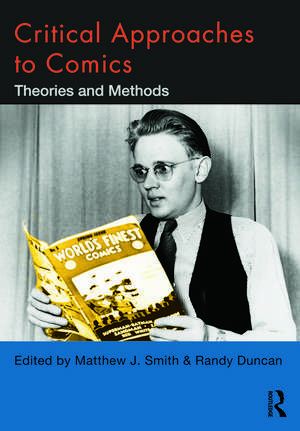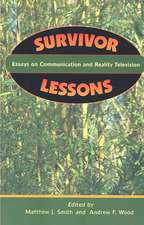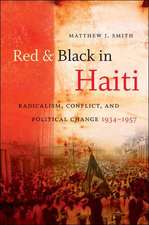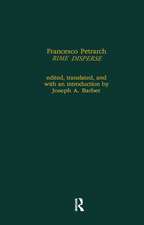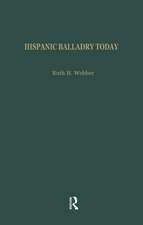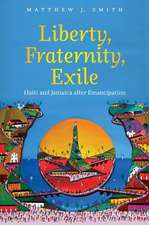Critical Approaches to Comics: Theories and Methods
Editat de Matthew J. Smith, Randy Duncanen Limba Engleză Paperback – 26 oct 2011
As the first comprehensive introduction to critical methods for studying comics, Critical Approaches to Comics is the ideal textbook for a variety of courses in comics studies.
Contributors: Henry Jenkins, David Berona, Joseph Witek, Randy Duncan, Marc Singer, Pascal Lefevre, Andrei Molotiu, Jeff McLaughlin, Amy Kiste Nyberg, Christopher Murray, Mark Rogers, Ian Gordon, Stanford Carpenter, Matthew J. Smith, Brad J. Ricca, Peter Coogan, Leonard Rifas, Jennifer K. Stuller, Ana Merino, Mel Gibson, Jeffrey A. Brown, Brian Swafford
| Toate formatele și edițiile | Preț | Express |
|---|---|---|
| Paperback (1) | 379.96 lei 6-8 săpt. | |
| Taylor & Francis – 26 oct 2011 | 379.96 lei 6-8 săpt. | |
| Hardback (1) | 1118.67 lei 6-8 săpt. | |
| Taylor & Francis – 26 oct 2011 | 1118.67 lei 6-8 săpt. |
Preț: 379.96 lei
Nou
Puncte Express: 570
Preț estimativ în valută:
72.70€ • 75.91$ • 60.17£
72.70€ • 75.91$ • 60.17£
Carte tipărită la comandă
Livrare economică 04-18 aprilie
Preluare comenzi: 021 569.72.76
Specificații
ISBN-13: 9780415885553
ISBN-10: 0415885558
Pagini: 328
Ilustrații: 65 black & white halftones
Dimensiuni: 178 x 254 x 15 mm
Greutate: 0.52 kg
Ediția:1
Editura: Taylor & Francis
Colecția Routledge
Locul publicării:Oxford, United Kingdom
ISBN-10: 0415885558
Pagini: 328
Ilustrații: 65 black & white halftones
Dimensiuni: 178 x 254 x 15 mm
Greutate: 0.52 kg
Ediția:1
Editura: Taylor & Francis
Colecția Routledge
Locul publicării:Oxford, United Kingdom
Public țintă
Postgraduate and UndergraduateCuprins
Introduction: Should We Discipline the Reading of Comics? Henry Jenkins I. Form 1. Wordless Comics: The Imaginative Appeal of Peter Kuper's The System David Berona 2. Comics Modes: Caricature and Illustration in the Crumb Family's Dirty Laundry Joseph Witek 3. Image Functions: Shape and Color as Hermeneutic Images in Asterios Polyp Randy Duncan 4. Time and Narrative: Unity and Discontinuity in The Invisibles Marc Singer 5. Mise en scene and Framing: Visual Storytelling in Lone Wolf and Cub Pascal Lefevre 6. Abstract Form: Sequential Dynamism and Iconostasis in Abstract Comics and Steve Ditko's Amazing Spider-Man Andrei Molotiu II. Content 7. Philosophy: "The Triumph of the Human Spirit" in X-Men Jeff McLaughlin 8. Journalism: Drawing on Words to Picture the Past in Safe Area Gorazde Amy Kiste Nyberg 9. Propaganda: The Pleasures of Persuasion in Captain America Christopher Murray III. Production 10. Political Economy: Manipulating Demand and "The Death of Superman" Mark Rogers 11. Culture of Consumption: Commodification through Superman: Return to Krypton Ian Gordon 12. Ethnography of Production: Editor Axel Alonso and the Sale of Ideas Stanford Carpenter 13. Auteur Criticism: The Re-Visionary Works of Alan Moore Matthew J. Smith 14. History: Discovering the Story of Jerry Siegel and Joe Shuster Brad J. Ricca IV. Context 15. Genre: Reconstructing the Superhero in All Star Superman Peter Coogan 16. Ideology: The Construction of Race and History in Tintin in the Congo Leonard Rifas 17. Feminism: Second Wave Feminism in the Pages of Lois Lane Jennifer K. Stuller 18. Intertextuality: Surrealist Intertextualities in Max's Bardin Ana Merino V. Reception 19. Cultural Studies: British Girls' Comics, Readers and Memories Mel Gibson 20. Ethnography: Wearing One's Fandom Jeffrey A. Brown 21. Critical Ethnography: The Comics Shop as Cultural Clubhouse Brian Swafford
Notă biografică
Matthew J. Smith is Professor of Communication at Wittenberg University. He regularly teaches "Graphic Storytelling" and leads an annual field study at Comic-Con International. Recent books include The Power of Comics: History, Form and Culture (with Randy Duncan) and Online Communication: Linking Technology, Culture, and Identity (with Andrew F. Wood).
Randy Duncan is Professor of Communication at Henderson State University. He is co-author of The Power of Comics: History, Form and Culture (with Matthew J. Smith). Duncan is a co-founder (with Peter Coogan) of the Comics Arts Conference, and serves on the Editorial Board of the International Journal of Comic Art and the Board of Directors of the Institute for Comics Studies. He was recently presented the Inkpot Award for Achievement in Comic Arts during the Pioneers of Comics Scholarship panel at Comic-Con International in San Diego.
Randy Duncan is Professor of Communication at Henderson State University. He is co-author of The Power of Comics: History, Form and Culture (with Matthew J. Smith). Duncan is a co-founder (with Peter Coogan) of the Comics Arts Conference, and serves on the Editorial Board of the International Journal of Comic Art and the Board of Directors of the Institute for Comics Studies. He was recently presented the Inkpot Award for Achievement in Comic Arts during the Pioneers of Comics Scholarship panel at Comic-Con International in San Diego.
Recenzii
"In this volume, ably edited by Randy Duncan and Matthew J. Smith, some of the brightest and best international comics critics have joined forces to apply a variety of theoretical approaches to selected major texts to elucidate their appeal for the modern reader. The result is a user-friendly guide for professors, students, and general readers alike. Criticism has seldom been more fun." —M. Thomas Inge, Blackwell Professor of Humanities, Randolph-Macon College
"The strength of this overview is in its truly admirable breadth—the broad range of objects it analyzes along with the various methodologies it brings to bear on comics. This volume is a valuable introduction to the lexicon of what many are now calling ‘comics studies’ that usefully seeks to enlarge the emerging field as opposed to fixing it down." —Hillary Chute, Neubauer Family Assistant Professor, English, University of Chicago
'In this volume, ably edited by Randy Duncan and Matthew J. Smith, some of the brightest and best international comics critics have joined forces to apply a variety of theoretical approaches to selected major texts to elucidate their appeal for the modern reader. The result is a user-friendly guide for professors, students, and general readers alike. Criticism has seldom been more fun.' —M. Thomas Inge, Blackwell Professor of Humanities, Randolph-Macon College
'The strength of this overview is in its truly admirable breadth—the broad range of objects it analyzes along with the various methodologies it brings to bear on comics. This volume is a valuable introduction to the lexicon of what many are now calling ‘comics studies’ that usefully seeks to enlarge the emerging field as opposed to fixing it down.' —Hillary Chute, Neubauer Family Assistant Professor, English, University of Chicago
'Despite the increasingly broad academic interest in and published studies of comic books, until now there has not been a single-volume handbook to methods in the field... If there is to be a discipline of 'comics studies,' this is the sort of book necessary for the conversation.' - D. Orcutt, CHOICE magazine
'Editors Matthew J. Smith and Randy Duncan deserve applause for their meticulous editing of Critical Approaches to Comics.' - Kirsten Mollegaard, University of Hawai'i at Hilo
"The strength of this overview is in its truly admirable breadth—the broad range of objects it analyzes along with the various methodologies it brings to bear on comics. This volume is a valuable introduction to the lexicon of what many are now calling ‘comics studies’ that usefully seeks to enlarge the emerging field as opposed to fixing it down." —Hillary Chute, Neubauer Family Assistant Professor, English, University of Chicago
'In this volume, ably edited by Randy Duncan and Matthew J. Smith, some of the brightest and best international comics critics have joined forces to apply a variety of theoretical approaches to selected major texts to elucidate their appeal for the modern reader. The result is a user-friendly guide for professors, students, and general readers alike. Criticism has seldom been more fun.' —M. Thomas Inge, Blackwell Professor of Humanities, Randolph-Macon College
'The strength of this overview is in its truly admirable breadth—the broad range of objects it analyzes along with the various methodologies it brings to bear on comics. This volume is a valuable introduction to the lexicon of what many are now calling ‘comics studies’ that usefully seeks to enlarge the emerging field as opposed to fixing it down.' —Hillary Chute, Neubauer Family Assistant Professor, English, University of Chicago
'Despite the increasingly broad academic interest in and published studies of comic books, until now there has not been a single-volume handbook to methods in the field... If there is to be a discipline of 'comics studies,' this is the sort of book necessary for the conversation.' - D. Orcutt, CHOICE magazine
'Editors Matthew J. Smith and Randy Duncan deserve applause for their meticulous editing of Critical Approaches to Comics.' - Kirsten Mollegaard, University of Hawai'i at Hilo
Descriere
Critical Approaches to Comics offers students a deeper understanding of the artistic and cultural significance of comic books and graphic novels by introducing key theories and critical methods for analyzing comics. Each chapter explains and then demonstrates a critical method or approach, which students can then apply to interrogate and critique the meanings and forms of comic books, graphic novels, and other sequential art. The authors introduce a wide range of critical perspectives on comics, including fandom, genre, intertextuality, adaptation, gender, narrative, formalism, visual culture, and much more.
As the first comprehensive introduction to critical methods for studying comics, Critical Approaches to Comics is the ideal textbook for a variety of courses in comics studies.
As the first comprehensive introduction to critical methods for studying comics, Critical Approaches to Comics is the ideal textbook for a variety of courses in comics studies.
